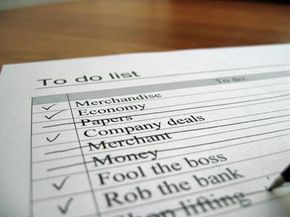Have you ever missed a doctor's appointment, only to find the appointment card days or weeks later? If the answer is yes, you're not alone. According to the Medical Group Management Association, 15 to 22 percent of patients in the United States don't show up for their medical appointments.
Perhaps you've sat at your desk at work, unaware that you're missing an important staff meeting. You look up and your boss is standing over you, wondering how it could have slipped your mind. Well, thanks to new technology you'll never have to miss the party again.
Advertisement
Automated reminders are a simple way to ease the overloaded to-do lists of people's busy lives. These scheduled electronic notifications arrive by e-mail, SMS (text message), phone or fax. They remind us to go to tomorrow's dentist appointment, catch Wednesday's red-eye flight on time, or attend mom's surprise birthday party on Saturday with a present in hand.
When patients receive an automated phone call from the doctor's office the day before, the "no-show" rate drops to a 5 percent average, reports the automated phone reminder company PhoneTree. That drop saves the doctor a lot of time and money and saves you the hassle of making (and keeping) another appointment.
Many people are already set up on some type of automated reminder tool -- the e-mail calendar. All Web calendars allow you to set up automated pop-up desktop reminders or e-mail reminders when it's time for a scheduled event. Some calendar programs like Google Calendar even include an option for sending an SMS reminder to a cell phone.
In this article, we'll introduce you to automated reminders by detailing their features, describing how they work and looking at useful applications for this technology.
Advertisement



